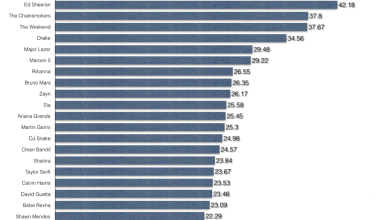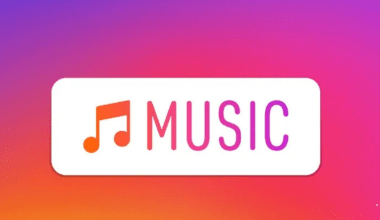In today’s fast-evolving music industry, distributing music has become one of the most critical steps for artists to reach their fans. Whether you’re an independent artist, a label owner, or just curious about how music gets from the studio to streaming platforms, understanding major music distribution companies is essential. These companies act as the bridge between artists and listeners, ensuring music is available worldwide.
In this blog, we’ll take a deep dive into the major players in the music distribution world, explore their roles, and explain why they’re indispensable to the music ecosystem. By the end of this, you’ll have a crystal-clear understanding of how major music distributors operate and how they impact artists, listeners, and the industry as a whole.
What Are Music Distribution Companies?
To put it simply, music distribution companies are the gatekeepers of music. They handle the logistics of getting music from artists or record labels to the platforms and stores where fans can access it. These include streaming services like Spotify, Apple Music, and Amazon Music, as well as physical outlets for CDs and vinyl.
Major music distribution companies, in particular, have vast networks and resources. They’re known for their global reach, strong industry relationships, and ability to invest in marketing and promotion. When you hear names like Universal Music Group, Sony Music Entertainment, and Warner Music Group, you’re looking at the giants in the distribution space.
Why Are Major Music Distribution Companies Important?
For an artist, creating music is just one part of the puzzle. The other half lies in ensuring that their music reaches as many listeners as possible. This is where major music distributors come in. They:
- Ensure Global Reach: With connections across multiple countries, these companies can get music to audiences worldwide.
- Offer Marketing Support: They often help with promotional strategies, advertising, and playlist placements.
- Provide Resources: From physical manufacturing to licensing, they handle the backend processes so artists and labels can focus on creating.
Top Major Music Distribution Companies
Universal Music Group (UMG)
Universal Music Group is often regarded as the largest music company in the world. UMG owns some of the biggest labels, such as Capitol Records, Island Records, and Def Jam Recordings. It’s a powerhouse in both music creation and distribution, working with a roster of global superstars.
- Key Strengths: Massive global reach, robust digital distribution systems, and significant marketing investments.
- Artists They Work With: Drake, Taylor Swift, Billie Eilish, and BTS.
Sony Music Entertainment
Sony Music is another giant in the industry. Beyond distribution, Sony also invests heavily in artist development and marketing. Their labels include Columbia Records, RCA Records, and Epic Records.
- Key Strengths: Advanced technology platforms, artist-friendly contracts, and an extensive music catalog.
- Artists They Work With: Adele, Harry Styles, and Travis Scott.
Warner Music Group (WMG)
Warner Music Group rounds out the trio of major music distribution companies. Known for its innovation, Warner is home to labels like Atlantic Records, Warner Records, and Elektra Music Group.
- Key Strengths: Cutting-edge distribution models, focus on independent artists through services like ADA (Alternative Distribution Alliance).
- Artists They Work With: Ed Sheeran, Lizzo, and Bruno Mars.
The Role of Technology in Music Distribution
The digital age has transformed how music is distributed. Major music distribution companies now leverage technology to:
- Streamline digital distribution.
- Collect and analyze data to optimize marketing strategies.
- Ensure seamless rights management for artists and labels.
Platforms like YouTube, TikTok, and Instagram have further changed how music is promoted, and distributors play a vital role in ensuring tracks gain visibility on these platforms.
How to Choose a Distributor as an Artist
If you’re an artist, you might wonder if you should work with a major music distribution company. Here are a few factors to consider:
- Reach and Connections: Do they have access to top streaming platforms and playlists?
- Marketing Support: Can they help with promotion?
- Costs and Contracts: Are they offering fair terms?
While major distributors are ideal for established artists, independent artists might benefit more from smaller, indie-friendly distributors like TuneCore, CD Baby, or DistroKid.
The Future of Music Distribution
As the music industry continues to evolve, major music distribution companies are adapting. Trends like blockchain technology, NFTs, and AI-driven music promotion are reshaping the landscape. For artists, this means even more opportunities to connect with fans and monetize their work.
In conclusion, major music distribution companies play a pivotal role in shaping the global music industry. Whether it’s helping artists reach a worldwide audience or ensuring the smooth operation of streaming platforms, their impact is undeniable. By understanding their role, artists and fans alike can better appreciate the complexities of the music ecosystem.
For further reading, explore these related articles:
For additional resources on music marketing and distribution, visit DMT Records Private Limited.






